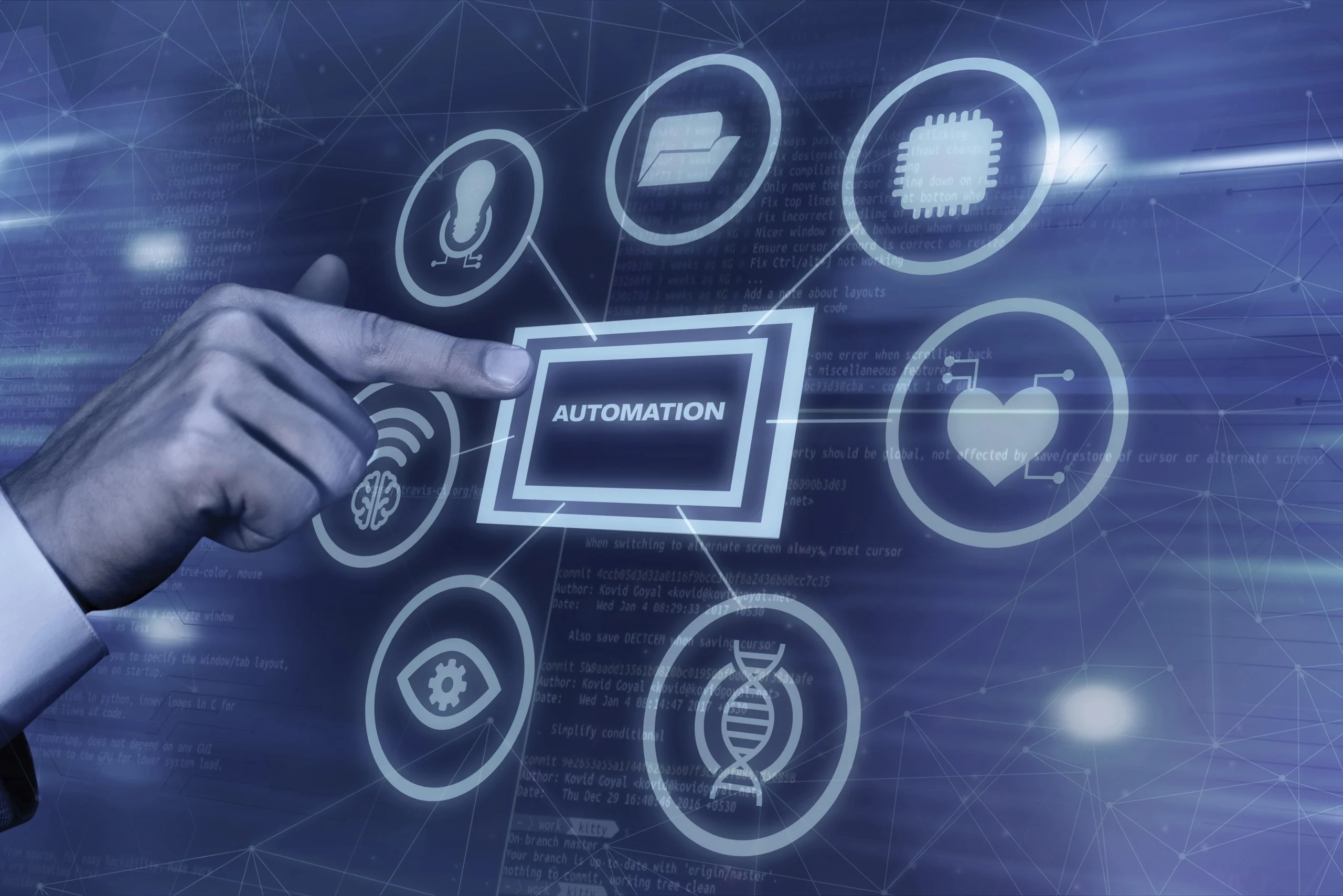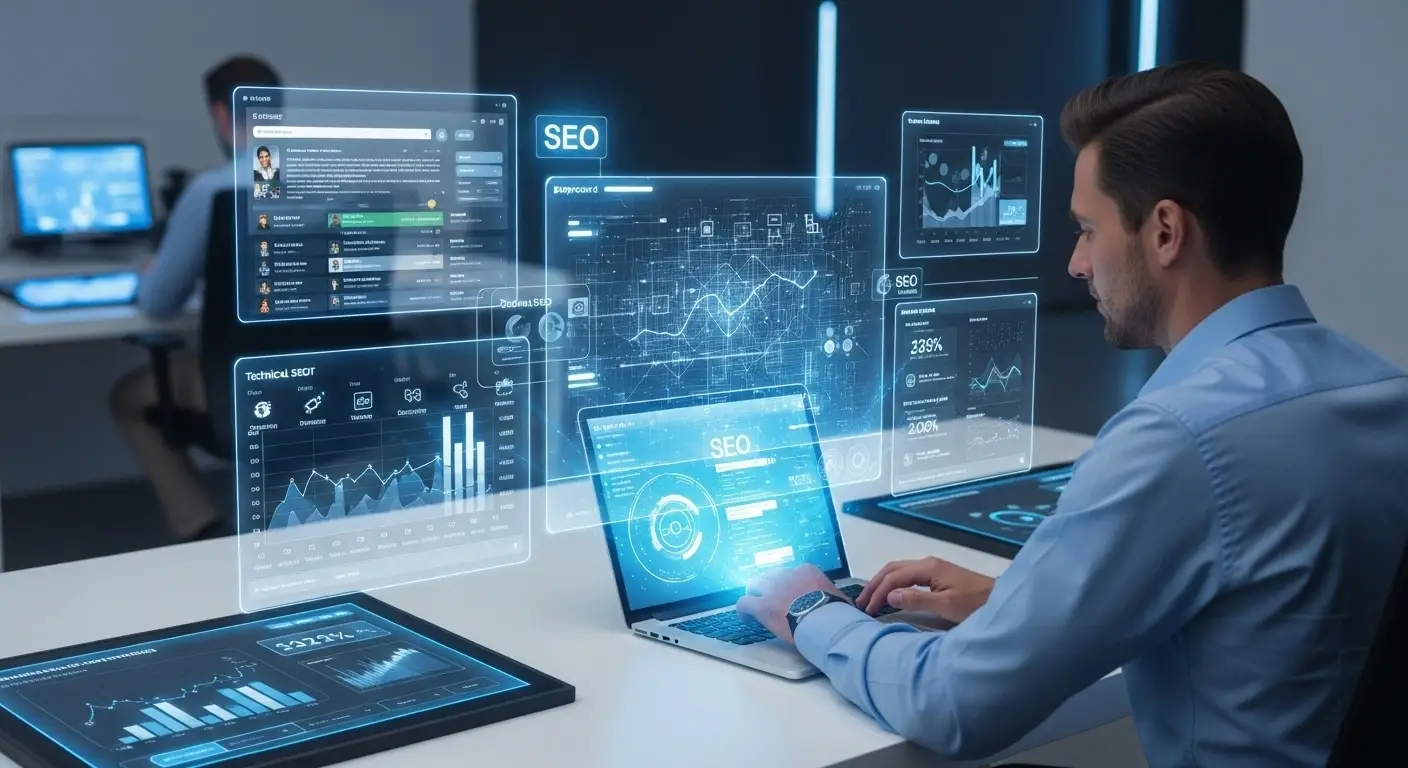Introduction
With AI in Marketing Automation, companies can streamline campaigns and connect with customers more effectively.Over the past ten years, marketing has undergone significant change. What was formerly largely dependent on human labour and guesswork has evolved into data-driven, customised, and automated systems. Artificial intelligence (AI) is one of the main factors causing this change. Businesses now use AI in marketing automation to increase returns on investment, save time, and provide better experiences.
AI is now the foundation of contemporary marketing, not merely an add-on feature. AI enables marketers to engage with their audience more deeply through predictive analytics and personalised product recommendations. Today’s consumers demand personalised experiences, and companies that don’t deliver run the risk of becoming less popular. Artificial intelligence-powered marketing automation enables businesses to meet these demands while executing more intelligent and effective campaigns.
This blog will go over the definition of artificial intelligence (AI) in marketing automation, its advantages, the top tools on the market, and how your company can successfully use them. By the end, you’ll see why AI-powered marketing isn’t just for the future; it’s the present, and every company should use it.
What is AI in Marketing Automation?
The application of artificial intelligence (AI) technologies to improve the intelligence and efficacy of automated marketing systems is known as marketing automation. Lead management, social media posting, and email scheduling were all handled by traditional marketing automation. These procedures were less intelligent even though they saved time. They were unable to predict what would work best or adjust to the behavior of their customers.

This is entirely altered by artificial intelligence. AI is able to examine vast volumes of consumer data, spot trends, and suggest courses of action through machine learning and predictive analytics. AI makes sure that every consumer receives content that is relevant to their behaviour and preferences rather than delivering the same message to everyone.
For instance, based on a user’s browsing history, an e-commerce business that uses marketing automation with AI can offer tailored product recommendations. Analysing which prospects are most likely to convert can help a B2B company score leads more accurately. Artificial intelligence and marketing automation work together to provide scale and personalisation that are not possible with just traditional tools.
Benefits of AI in Marketing Automation
AI marketing automation is one of the most potent tools in digital marketing today because it provides a number of benefits. Businesses benefit from efficiency, personalisation, and quantifiable growth when automation and intelligence are combined.AI in Marketing Automation ensures businesses move beyond traditional methods and embrace smarter, data-driven growth. The most significant advantages are listed below:
Large-Scale Personalisation
Consumers demand individualised experiences, and AI enables this on a broad scale. To provide highly customised messages, it examines user demographics, behaviour, and previous interactions. Businesses can now meaningfully connect with individuals instead of relying on broad campaigns.
Improved Audience Segmentation
Audiences were categorised into broad groups using traditional segmentation. AI, on the other hand, recognises micro-segments based on preferences and behaviour in real time. By doing this, marketing campaigns are guaranteed to reach the most relevant audience and have the highest conversion rate.
Efficiency in Time and Cost
Repetitive activities like scheduling, reporting, and customer follow-ups take up countless hours of marketing teams’ time. AI handles these tasks, freeing up teams to concentrate on strategy and creativity while cutting expenses overall.
Data-Driven Decision Making and Predictive Analytics
Predicting future behaviour is one of AI’s best skills. It has the ability to predict campaign outcomes, consumer behaviour, and trends. Businesses obtain a competitive edge and save money on inefficient tactics by using data to inform their decisions.
7 Best AI in Marketing Automation Tools for 2025
A number of tools have become industry leaders in marketing automation as AI technology develops. These platforms help businesses get better results by combining intelligence and automation.
- HubSpot with AI Functionalities: One of the most widely used marketing platforms for a long time, HubSpot is made even more potent by its AI-driven features. HubSpot enables companies to optimise their campaigns across email, social media, and customer relationship management with features like chatbots driven by AI and predictive lead scoring.

- Einstein Salesforce: Artificial intelligence is incorporated into the Salesforce ecosystem by Salesforce Einstein. It assists companies with customer insights, predictive analytics, and more intelligent lead prioritisation. Salesforce users gain from AI-powered suggestions that enhance marketing and sales outcomes.
- AI for Mailchimp: From a simple email marketing tool, Mailchimp has developed into a comprehensive automation platform. Send-time optimisation, subject line personalisation, and intelligent content recommendations are some of its AI features. These tools help companies get more out of their email campaigns and increase engagement.
- AI from Hootsuite: Social media management can be daunting, but Hootsuite’s AI tools make it easier. The platform automates scheduling, evaluates content performance, and recommends the optimal times to post. Brands can save time and improve audience engagement with these insights.
- AI-Powered ActiveCampaign: Customer journey automation is the main focus of ActiveCampaign, and it has become even more successful with AI. Customers are guaranteed to receive the appropriate message at the appropriate moment thanks to the tool’s predictive sending capabilities, dynamic content creation, and clever automation workflows.
- Surfer SEO + Jasper AI: Digital marketing requires the creation of content, and Surfer SEO and Jasper AI facilitate this process. Surfer SEO makes sure that the content is search engine optimised, while Jasper produces excellent, human-like content. When combined, they offer a potent remedy for inbound marketing tactics.
How to Implement AI in Your Marketing Automation Strategy
It takes more than just implementing new tools to use AI in marketing automation. To get the best results, businesses need to carefully plan their strategy. The essential steps are as follows:
Establish Objectives and KPIs:
Verify that the AI tools integrate seamlessly with your social media accounts, email platform, and CRM. Accuracy and consistency are guaranteed by integration.
Track Performance and Make Improvements:
Although AI offers insightful information, you still need to continuously assess campaigns and make necessary modifications. The secret to success is constant optimisation.Clearly state your goals for using AI, such as increased efficiency, better engagement, or higher conversions.

Select the Appropriate Equipment:
Choose AI marketing automation solutions based on your company’s requirements. Not every business is a good fit for every platform.
Track Performance and Make Improvements:
Although AI offers insightful information, you still need to continuously assess campaigns and make necessary modifications. The secret to success is constant optimisati
Future of AI in Marketing Automation
AI in marketing automation appears to have a bright future. Hyper-personalization, in which AI creates experiences that are so customised that they feel nearly one-on-one, is one of the most popular trends. As consumer expectations increase, this will become more and more crucial.
The emergence of generative AI, which can produce campaigns, content, and advertisements in real time, is another trend for the future. This will expedite campaign execution and lessen the workload for marketers.
Lastly, it is anticipated that Generative Engine Optimisation (GEO) will influence SEO going forward. Marketers will need to optimise their content for both generative AI outputs and traditional keywords as search engines embrace AI-driven results.
Conclusion
AI in marketing automation is the new norm for companies looking to expand in the cutthroat digital market, not just a fad. Businesses can enhance ROI, save time, and deliver individualised experiences by fusing automation and intelligence. Looking ahead, AI in marketing automation will continue to redefine how businesses scale, engage, and compete online.
The options are numerous and efficient, ranging from HubSpot and Salesforce to Jasper AI and Zapier. However, effective execution, ongoing oversight, and striking a balance between automation and human creativity are necessary for success.
Contact Us
If you’re ready to take your marketing to the next level with AI in marketing automation, our team at Fast Digital 360 is here to help. We provide complete digital marketing services, web development, SEO services, and PPC management designed to deliver measurable results. Whether you need smarter campaigns, improved engagement, or higher ROI, we’ll create strategies tailored to your business. To get started, visit our contact page, let’s grow your business with AI-powered solutions.
Frequently Asked Questions (FAQ)
1. What is AI in marketing automation?
It is the use of artificial intelligence to make marketing automation smarter and more effective. AI analyzes data, predicts behavior, and personalizes campaigns.
2. Which are the best AI marketing automation tools?
Some of the most popular tools include HubSpot, Salesforce Einstein, Mailchimp AI, ActiveCampaign, Jasper AI, and Zapier.
3. How does AI improve customer engagement?
AI creates personalized experiences, predicts customer needs, and delivers the right content at the right time, which improves overall engagement.That’s why AI in Marketing Automation plays a key role in boosting engagement.
4. Is AI marketing automation suitable for small businesses?
Yes, many AI-powered tools offer affordable plans for small businesses, helping them compete with larger organizations.




